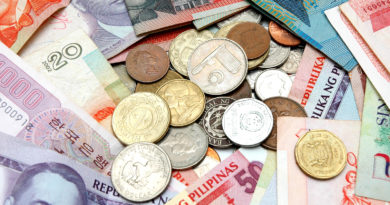21 Ways To Cut Down On Food Expenses
“Practical frugality is the only financial advice that will work for almost everyone,”says financial planner Bernard Sy.“It is the best financial strategy anyone should practice. Frugality is not being cheap; it is just being financially smart which also gives you freedom from your money.”
Here are ways 21 for you to cut down on food expenses – from the grocery to the restaurant and finally at home
Supermarket and Grocery
-
Buy Healthy Food.
More often than not, the healthiest food cost the least. Examples of these are vegetables, tofu, chicken (which is better than pork or beef), some fish, and beans. It also helps a lot to learn how to utilize those ingredients into the food table; as such recipes are available online for free.
-
Go For “on sale” Season.
Plan your meals around “on sale” or “in season” food. The prices of fresh food swing a lot depending on season; vegetables and fruits in particular.
-
Set A Price Limit.
Set a buck limit and set a price limit. For example, you need to buy food not more than 100 kg.
-
Look For Markdown Spots.
Supermarkets have markdown spots – this is the place where they put things on sale. Food on a “Buy 1 Take 1” offer is inexpensive but do check it out first and think of how to utilize the food. Take note that food which is near their expiry dates is still good food.
-
Make a Shopping List.
Make a shopping list but be flexible. Supermarkets are designed to arouse impulse buying, so better have a shopping list and stay focused on it, but make sure to grab the food if there is a good deal.“It’s also very important to plan your menu for the week before going to the grocery so you won’t buy unnecessary items,” says freelance food writer Kristina Villa.
-
Shop in Bulk.
You can shop in bulk for food items that retain their freshness for a long time. The lesser you visit the grocery, the better. This saves time, effort, transportation costs and minimizes the chance of buying stuff that you don’t need.
-
Don’t Bring Your Kids Along.
Minimize grocery with the kids. They can pester you out on buying more things, particularly junk food, just to keep them quiet.
-
Don’t Go To Convenience Stores.
Convenience stores are, like their namesake, for convenience. But they have a terrible price. Never, ever shop at those stores unless it is an emergency. “I know a few who buy their grocery there and their prices are not good,” says Sy.
-
Familiarize Yourself With Food Markets and Grocery Stores.
Familiarize yourself with places where it is known for its produce. Tagaytay, for example, has inexpensive coffee beans (200 kg vs 500kg), fresh vegetables and fruits. Divisoria and Balintawak market, on the other hand, produce inexpensive fruits such as apples, pears, oranges, and other vegetables.
At Home
-
Cook.
Cook at Home! Being too busy is simply a flawed alibi not to cook your own meal. “People nowadays are too busy to cook because they are too busy earning money to spend it by eating out,” says Sy. Kristina Villa agrees, “Bottomline is learn to cook. When you do eat out, try something different. Research for the recipe of the dish you like and make it yourself at home.”
-
Eat Healthy
“Unhealthy food tends to be the more expensive ones,” says Sy. “Learn healthy and green living, and the rest will follow. It’s this simple.”
-
Organize The Refrigerator
Some people have a cluttered refrigerator. This is perfectly okay but the food has lost their freshness over time because it’s been stacked over and it’s been spoiled; when this happens, you just poured your money over the drain.
-
Be Creative.
Be creative on leftover food. A simple tweak and twist can transform a leftover food into another dish.
-
Learn a New Dish.
Learn, learn, and learn a new dish, preferably a healthy one. Eating the same food can be boring and the probability of eating out gets higher and higher which spells more food cost.
-
Make Packed Lunches.
There’s nothing wrong making a packed lunch or snacks, especially when you send your son to school or your husband to the office. This is the easiest and most practical way to save money.
-
Cook in Big Batches.
“Cook in big batches for food items that can keep well – like mother sauces,” says project manager Twinkle Legaspi.
At The Restaurant
-
Try to Avoid Eating Out.
Eating out is one of biggest budget busters. This is definitely more expensive and less healthy. “ Eating out is a big black hole in your pocket,” says Sy, “You can save 90% on your money just by having a baon, or eating at home.”
-
Go For Coupons.
“One thing I do to save on restaurants is to avail of coupons – Groupon, Ensogo, Metrodeal, and others,” says Sy. More often, coupons are 50% off than regular price, but make sure to be practical. Buying more does not equate to savings – it still is an expense so limit how many coupons a month you can consume.
-
Check Out Online Reviews.
“Read some restaurants simply are expensive but their food sucks so people’s opinion about “value” and “taste” matters.
-
Avoid Cafés.
“Coffee shops and milk teas have terrible value unless you want to hang around for few hours. “I don’t go to Starbucks or Sereniteas just to drink their beverages, but only to conduct business talk, “says Sy. If you like coffee that much, then make your own. It’ll cost less than P10 for a perfectly good cup of coffee.
-
Order Big Servings.
“At work, we order big servings/short orders, good for sharing for three to four persons, instead of the usual set meal/ricetoppings,” says Miven Nano.
.







Yes! Finally someone writes about raw vegetable recipes.